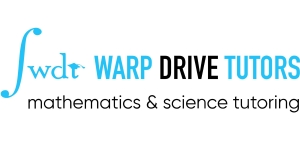Private tutoring is expensive and often unrealistic for many families. But children from less affluent families struggle with chemistry as well! If the family lacks the means to hire someone from one of the tutoring firms, are there plausible alternatives? Let’s look at possible resources and discuss the relative benefits of each. Two things to consider though regardless of how much you pay for your tutor: first, your child has to be up for doing the work. This sounds obvious but we see a lot of kids who simply have no impetus to study! Like piano lessons, they won’t improve if they don’t work at it diligently. The second is that to get the most out of a session with a tutor, the student should write down in advance what, to the extent known, they don’t understand. This sounds a bit counter intuitive, sort of like asking someone who lost their car keys where they left them last, but time spent narrowing down the areas that they don’t understand will prove tremendously beneficial during their tutoring sessions.
So, your mail arrives in the morning with the dreaded mid term warning from the math teacher. Where do you turn first, when the mortgage is already a bit if a stress? Your first call, and a terrific option, is to consider a math teacher from another local school. That teacher makes their living teaching math exclusively, and they see the same problems your child encounters on a daily basis in their own classroom. You can bet they have a pretty good idea of how to address your child’s specific issues, and equally importantly have worked with numerous stressed out kids who insist they “just can’t get it”. Interestingly, lots of fairly new teachers are really good at this; they need not have taught for decades. The problem of course is that in recent years math and science teachers have become aware of sky-high tutoring fees, and charge accordingly. Still there are quite a few who do not and it is definitely worth your time to investigate. Incidentally, there are various websites in which students post reviews of their teachers. For obvious reasons, if you decide to look at those websites when looking for a teacher, you may want to consider those reviews with some skepticism.
A second option is to find a graduate student from a local university in the particular discipline your child is studying. A graduate student in a PhD program is by definition preselected for their academic achievement as an undergraduate, as well as their intellectual curiosity in that particular field. So you can always call up the secretary for the graduate office for the finite math department, tell them you have a son/daughter who is struggling with geometry, and ask if there is a grad student around who can do some tutoring. The drawback with having a graduate student tutor your child is that person’s main focus in their life is their graduate project, and scheduling can sometimes prove challenging. The other problem is that once you are in a graduate program, despite your knowledge in one very specific area, you are fairly well removed from classes you took in high school. One’s responsibility as a grad student, and laser like focus, is on keeping up with the literature in a very specified area, and so recollection of geometric proofs may be a bit foggy. Graduate programs in electrical engineering do not require an understanding of how to teach algebra II/trigonometry; and knowledge of how to teach algebra II/trigonometry is what is important as far as what concerns your child. Although it is not difficult to go and relearn it, you want to make sure that the person your child works with has solved a quadratic equation at some point in the last ten years. Look for someone with a specific knowledge of the subjects taught in your child’s particular class, which might, in fact, mean you are even better off with an undergraduate student. They will often have a much better recollection of the material, since it will have been considerably more recent for them. Graduate and undergraduate students will generally charge a lot less than a tutoring firm.
Another resource, as you all probably are aware of, is Kahn Academy, http://kahnacademy.com. While it is not interactive there is no reason not to give it a look. Sometimes an explanation from a Kahn Academy physics tutorial is all that is required. Of course the disadvantage is you can’t ask questions.
Finally, a great and often overlooked resource is for kids to form study groups with their friends. Not only is this more fun, more social and important for the whole “working with others” skill set, but it is actually very productive; one kid out of a group of say three will always understand how to do a particular problem that the other two do not. And then there is the whole mutual support thing in terms of the aforementioned subject of feeling stressed if you cannot immediately grasp the problem, because it makes things a whole lot easier if a student sees that they are not the only one struggling. Study groups are an overlooked option, and kids who try them really enjoy working this way.
All children should have access to extra help if they need, and perhaps some of these resources and ideas will prove useful. Remember that effective tutoring will not make the subject easy and that a certain amount of struggle is inherent in learning; in fact a certain amount of struggle probably allows a student to build up a particular mental model that makes sense to them. Alas, tears are sometimes the by-product.
Good Luck! Be sure to give us a shout if you have any questions.
